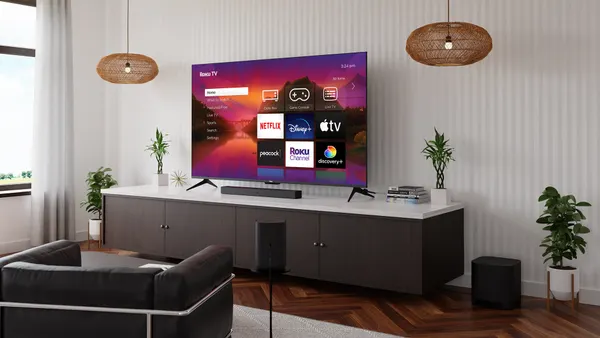Dive Brief:
- Oculus is dropping the price of its Rift plus Touch bundle 30% from $798 to the new price of $598 as announced in a company blog post.
- The same post also announced the launch of a new Rift-only shooter game titled, “Robo Recall,” that will be bundled with new Touch purchases.
- A separate company blog post from Oculus VP of content, Jason Rubin, acknowledged the need for a lower price point for PC virtual reality units. "We believe this lower entry price will attract consumers to PC VR at a faster pace. This is universally good for the entire community, but especially for developers. A larger user base means higher potential sales, easier player matching, better communities, and results in the ability to invest more in titles. This increased investment means better software which in turn brings more consumers. This virtuous cycle is the fuel that can launch PC VR,” Rubin wrote in the post.
Dive Insight:
Oculus is facing some challenges including stagnant sales that can be largely attributed to the old price point. The issue with PC VR over console VR (such as Sony’s PlayStation offering) and mobile VR (like Oculus and Samsung’s Gear) is even after consumers buy the hardware — Rift plus Touch in this case — they still need a state-of-the-art PC system to fully realize the technology’s capabilities. The lowered price for Oculus Rift should help, but doesn’t address the additional couple of thousand dollars full-on PC VR requires for an optimal experience.
Rubin’s blog mentioned that console VR is outselling PC VR, and mobile VR, with the lowest price point, is selling more than both other options. At the same time, VR tech as a consumer item is in its infancy even if the promise of virtual reality has been around for decades. Research from ABI Research from last month predicts VR device shipments will hit 110 million by 2021, and a separate report from Juniper Research last October forecasted that VR hardware spending could surpass $50 billion by the same year. Taken together the reports indicate a solid future for VR.
Oculus is also embroiled in legal issues with ZeniMax, the company Facebook acquired Oculus from in 2014. ZeniMax already won a $500 million lawsuit for violating copyrights and a non-disclosure agreement, and ZeniMax is now seeking to block the sale of Oculus devices that use the copyright infringing code.









